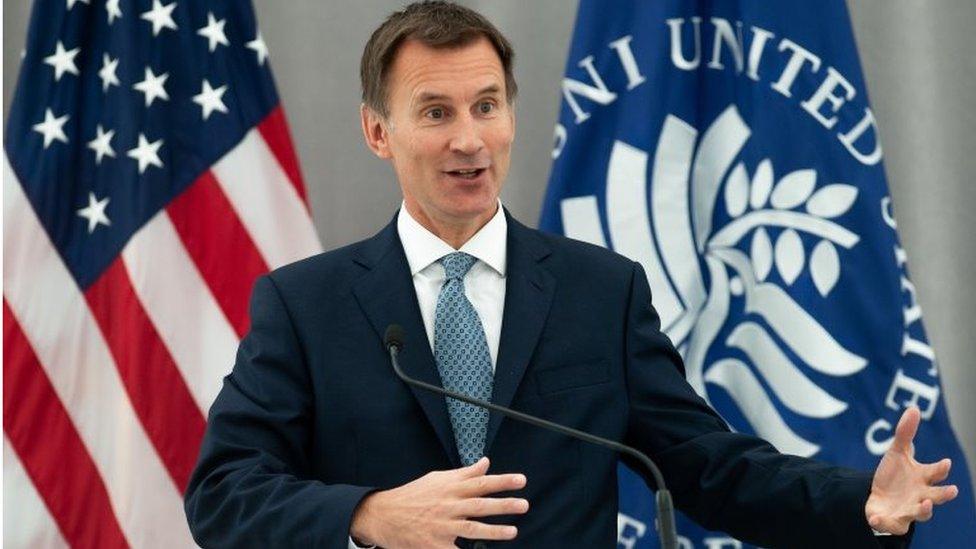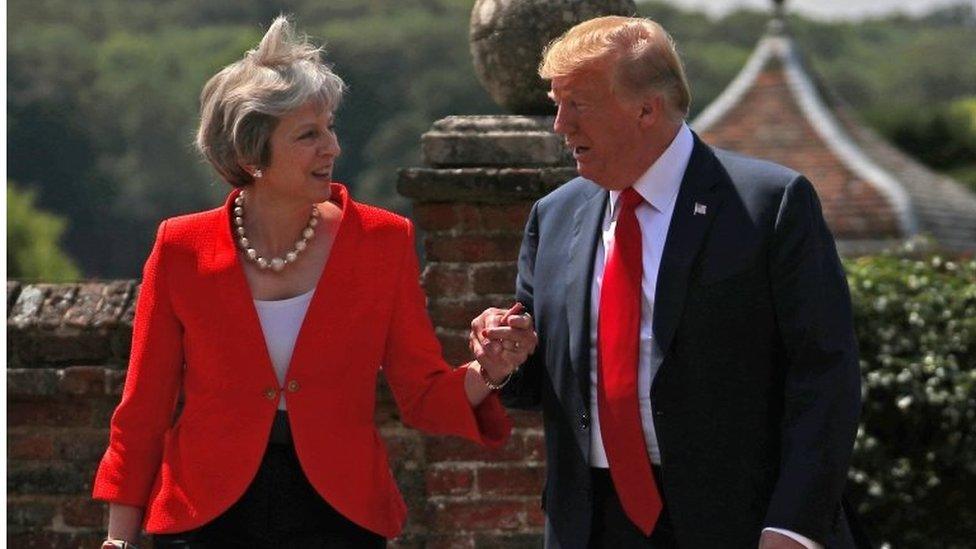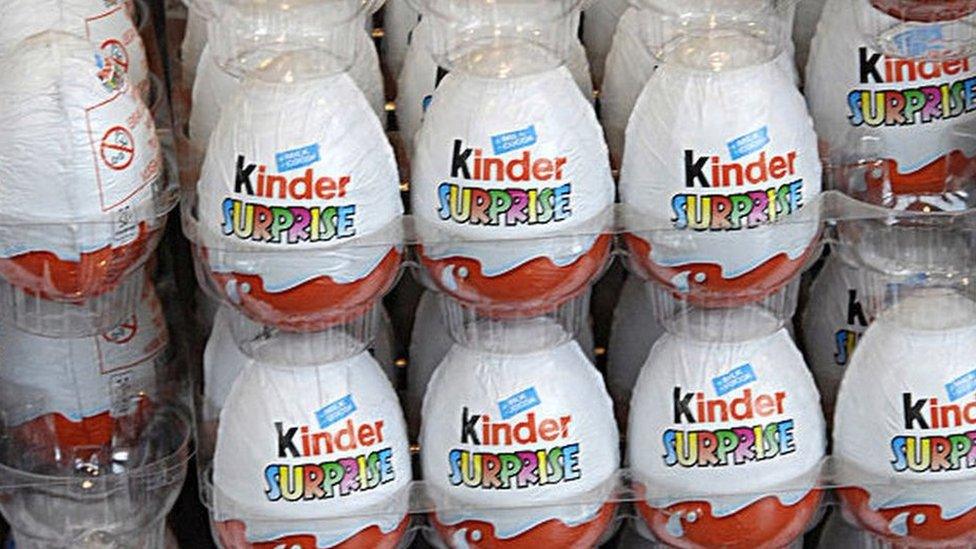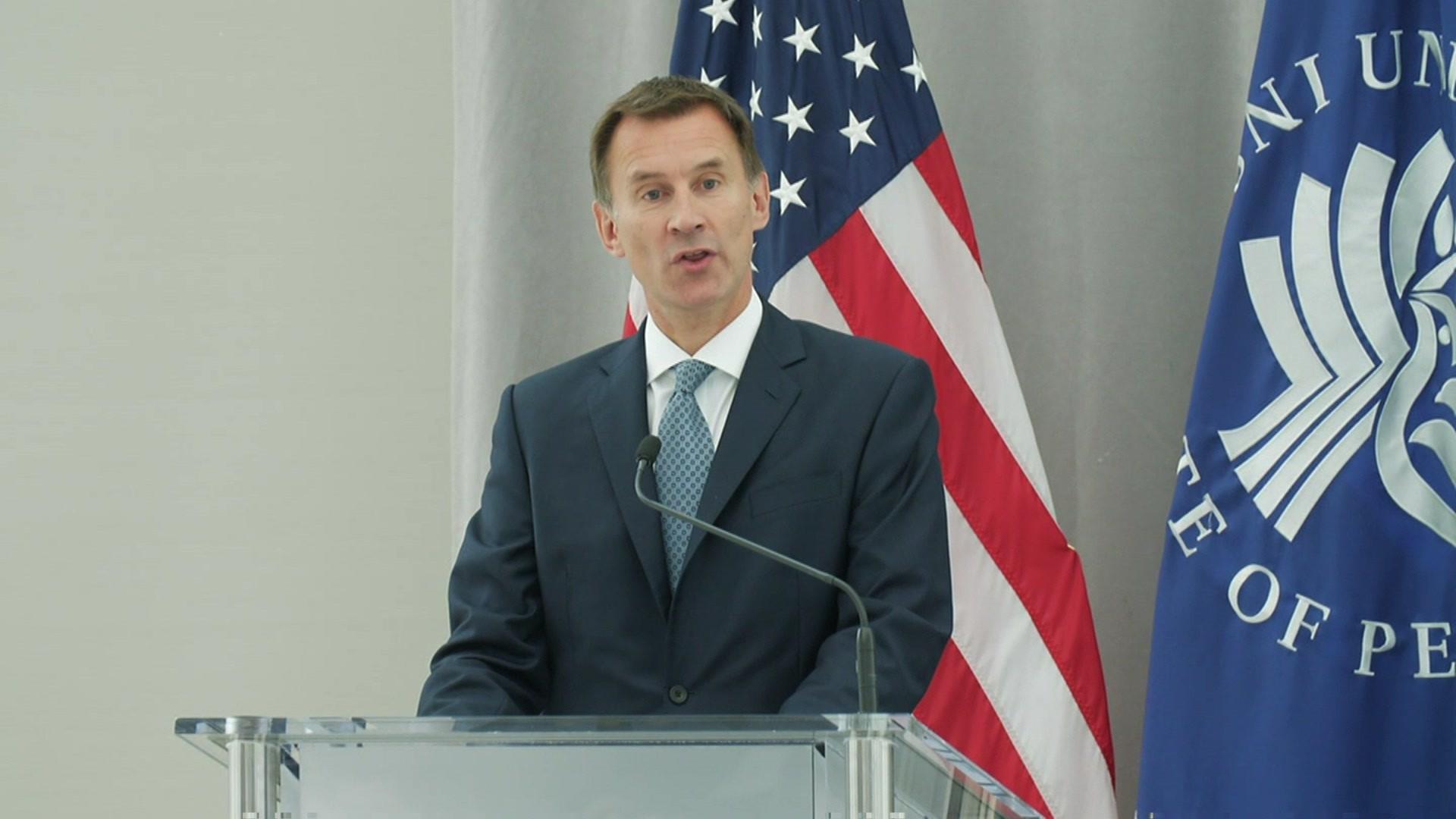What does Jeremy Hunt want from the United States?
- Published

What does Jeremy Hunt want from the US?
For Jeremy Hunt, it was a no-brainer that he had to make his first speech as Britain's post-Boris Johnson foreign secretary in Washington
It is to the United States that Britain now looks, even more ardently than before, as first among allies.
Why? Because the UK is preparing to leave the European Union, with or without a deal, and needs friends outside Europe as never before.
Jeremy Hunt surprised me by the strength of his endorsement of Donald Trump when the foreign secretary sat down for a 20-minute BBC interview just ahead of delivering his speech.
"What I would say about President Trump is of course he is controversial," he said.
"I've clashed with him myself when I was health secretary when he criticised the NHS.
"We disagree with him about the Iran nuclear deal. There are plenty of things we disagree with him about including US trade sanctions against Europe - of which we are part.
"There are plenty of things we disagree with. But let's not, in the fog of all the things we disagree with him about, forget that on 90-95 percent of issues we are on exactly the same page as the United States. They are our allies. They are our friends"

In his speech, Mr Hunt identified Russia as the principal malign threat to an international order based on the application of law rather than might.
"Those who do not share our values need to know that there will always be a serious price to pay if red lines are crossed, whether territorial incursions, the use of banned weapons or increasingly cyber attacks," he said.
He was speaking at the US Institute of Peace, a non-partisan organisation based in Washington.
And he used the speech to appeal to the EU to follow the lead of the US and increase sanctions against Russia following the Novichok chemical weapon attack on Sergei and Yulia Skripal in Salisbury which subsequently killed Dawn Sturgess.

Theresa May said she was appalled and shocked" by the death of Dawn Sturgess, a 44-year-old mother of three
And that is a clue to Mr Hunt's thinking. The EU should measure up, in his view, to American leadership.
The Trump administration triggered economic sanctions by determining that Russia had indeed, despite the Kremlin's repeated denials, breached the global ban on the use of chemical weapons.
But Mr Hunt must know that the EU will not follow the Americans down that road.
Regrettable as it may be from the foreign secretary's viewpoint, the largest reason that existing EU sanctions were imposed on Russia to punish its annexation of Crimea and destabilisation of Ukraine is because Britain drove the case hard and won others round.
Take Britain out of the EU, and there's no other powerful member state anything like as enthusiastic.
Indeed some governments, most publicly the Italian government, think now is the time to draw a line under Russian behaviour and relax, not increase, the pressure of sanctions.
In other words, the EU without Britain at the table would not have been anything like as tough on President Putin's Russia.
Conversely, after Brexit, Britain outside the EU will not be able to deliver anything like the firepower of EU-wide sanctions.
Jeremy Hunt says the UK's relationship with Saudi Arabia "stops bombs going off on the streets of Britain"
So, at a time when Mr Hunt is arguing for alliances which can stand up for a fraying international order based on rules, Britain is extracting itself from one of those alliances.
Mr Hunt, who has gone from being a Remainer to a supporter of Britain leaving, must earnestly hope that Brexit won't make Britain a diminished power, and won't therefore make Britain less attractive to the US as first among friends.
He can take some comfort from the fact that Donald Trump is an enthusiast for Brexit.
But will that enthusiasm translate into any sort of American generosity towards Britain, particularly over the terms of a yet-to-be-negotiated UK-US free trade deal?
In a little over six months from now, we may begin to find out.
- Published9 June 2017
- Published13 July 2018

- Published21 August 2018
